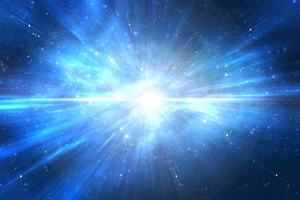I have always been deeply fascinated by the Big Bang, since I was a young child. I remember reading all the books written by popular science authors about the subject. Somehow the birth of the universe held the epitome of scientific knowledge and I was drawn to it.
Now there are so many competing string theories and no one seems closer to the truth, if there is a truth. The Standard Model has evolved into something extremely complicated with a whole host of particles. The mathematics that goes into these theories is mind boggling and no one knows which path is the right one. New theories seem to be invented all the time, each one seemingly requiring more dazzling mathematics to describe.
I have resolved to learn quantum electrodynamics and quantum field theory. That will only lead me a tiny fraction of the way toward understanding what these scientists are talking about, but at least, I will know the kind of vocabulary they speak. It is a very daunting.

